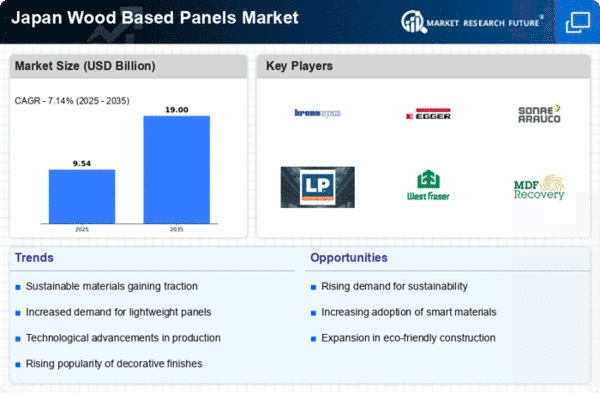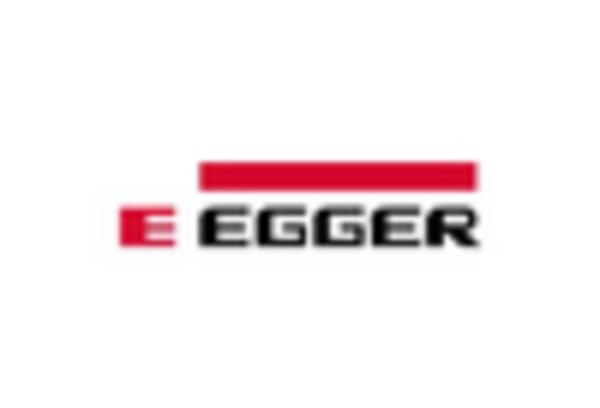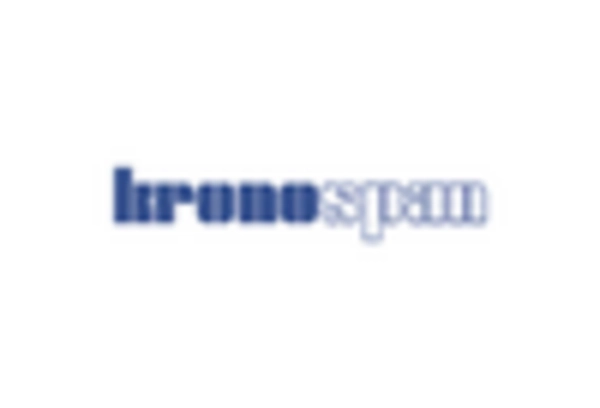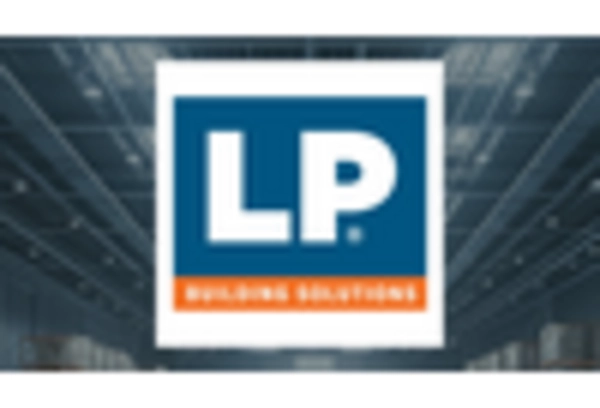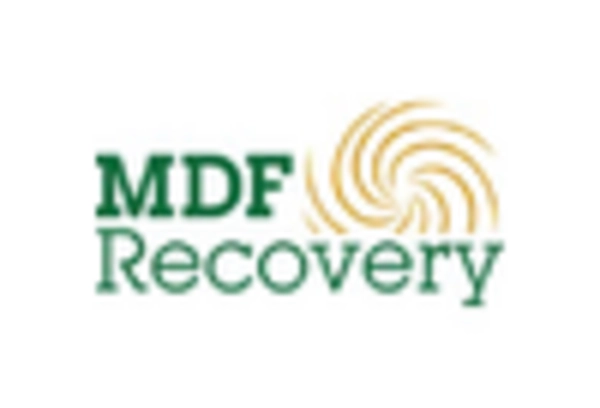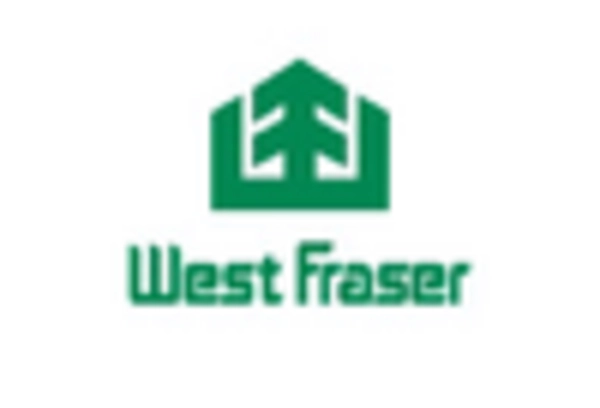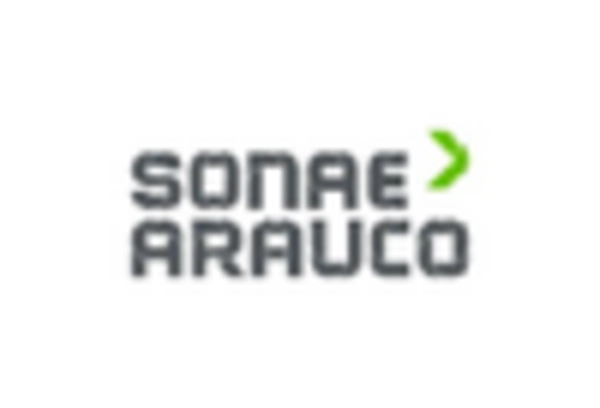Growth in Construction Activities
The The market is significantly influenced by the growth in construction activities across Japan. With urban development projects on the rise, there is an increasing need for building materials, including wood based-panels. In 2025, the construction sector is expected to expand by 10%, which will likely drive the demand for various types of wood based-panels, such as plywood and particleboard. This growth is attributed to both residential and commercial construction projects, which require durable and versatile materials. As architects and builders seek to incorporate wood based-panels for their aesthetic and functional properties, the market is poised for substantial growth, potentially leading to increased production capacities and innovation in panel designs.
Rising Demand for Eco-Friendly Products
The wood based-panels market in Japan is experiencing a notable increase in demand for eco-friendly products. This trend is largely driven by heightened consumer awareness regarding environmental sustainability. As more individuals prioritize sustainable living, manufacturers are compelled to innovate and produce panels that utilize renewable resources. In 2025, the market for eco-friendly wood based-panels is projected to grow by approximately 15%, reflecting a shift towards greener alternatives. This demand is further supported by government initiatives promoting sustainable forestry practices, which encourage the use of certified wood. Consequently, the wood based-panels market is likely to see a surge in products that meet these eco-conscious standards, thereby enhancing market competitiveness and attracting environmentally aware consumers.
Increased Focus on Interior Design Trends
The The market is also being influenced by evolving interior design trends in Japan. As consumers increasingly seek to enhance their living spaces, the demand for aesthetically pleasing and functional wood based-panels is on the rise. In 2025, the market is projected to grow by 12% due to the popularity of open-concept living and the use of wood panels for decorative purposes. Designers are incorporating wood based-panels into various applications, from wall coverings to furniture, which is likely to drive innovation in design and finishes. This trend not only boosts the market but also encourages manufacturers to diversify their product offerings to cater to changing consumer preferences.
Technological Innovations in Manufacturing
Technological advancements in manufacturing processes are playing a crucial role in shaping the wood based-panels market. Innovations such as automated production lines and advanced adhesives are enhancing the efficiency and quality of panel production. In 2025, it is anticipated that the adoption of these technologies will increase by 20%, allowing manufacturers to reduce waste and improve product consistency. Furthermore, the integration of digital technologies, such as AI and IoT, is enabling better inventory management and supply chain optimization. These advancements not only streamline operations but also contribute to the sustainability of the wood based-panels market by minimizing environmental impact during production.
Regulatory Support for Sustainable Practices
The regulatory landscape in Japan is increasingly supportive of sustainable practices within the wood based-panels market. Government policies aimed at promoting sustainable forestry and responsible sourcing are encouraging manufacturers to adopt eco-friendly practices. In 2025, it is expected that compliance with these regulations will become more stringent, leading to a greater emphasis on certified wood products. This regulatory support is likely to drive innovation in the wood based-panels market, as companies seek to align their operations with environmental standards. As a result, manufacturers may invest in research and development to create products that not only meet regulatory requirements but also appeal to environmentally conscious consumers.


